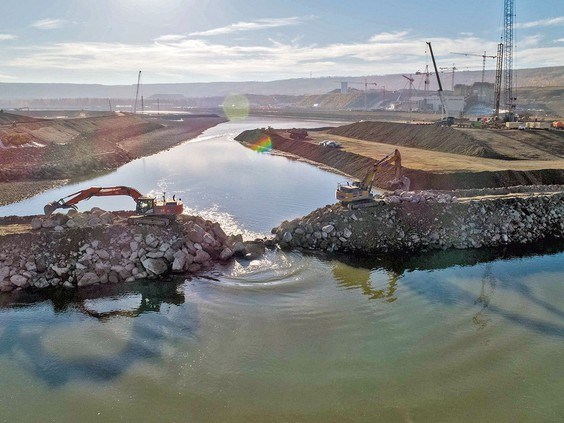Provincial health officer Dr. Bonnie Henry has ordered all major projects in B.C.’s north to drastically scale back work to prevent the Northern Health region from buckling under COVID-19 pressure.
On Dec. 29 Henry told the operators of five major projects to stand down thousands of workers, allowing only baseline workforces to remain in place.
“There has been a rapid increase in the number of persons infected with COVID-19 associated with large scale industrial projects employing high numbers of workers which are located with the Northern Health Authority region,” Henry wrote in the order.
“This increase has resulted in increased numbers of clusters of people with COVID-19, outbreaks of COVID-19, the transmission of COVID-19 to surrounding communities - including Indigenous communities - increasing the risk of hospitalizations, intensive care admissions and deaths in the Northern Health region.” Henry said that this was taxing Northern Health’s ability to do contact tracing and to provide care.
“The current seasonal slowdown in large-scale industrial operations provides an opportunity to help break the cycle of transmission …
“A rapid return to full operating capacity on the part of large-scale industrial operations, with the attendant rapid return of large numbers of workers to the work sites and industrial camps will likely further fuel and accelerate the cycle of transmission of COVID-19 among workers and their surrounding communities,” she wrote.
The major projects are the LNG Canada natural gas liquification and export facility being build in Kitimat, the Coastal GasLink pipeline being built from Dawson Creek to Kitimat to provide natural gas for the LNG Canada facility, the Site C dam project near Fort St. John, the twinning of the federal-government owned Trans Mountain Pipeline from Edmonton to Burnaby and the twinning of the tunnel near Kitimat that provides water to power Rio Tinto’s aluminum smelter.
Under Henry’s order, the Coastal GasLink pipeline and Site C projects are allowed to have 400 workers each. LNG Canada can have 450 workers, the Rio Tinto project can have 160 and Trans Mountain Pipeline can have 50 workers Project managers must submit a restart plan to Henry’s office in order to be allowed to increase their workforces over the next six weeks - in two stages.
Under stage one all projects except Coastal GasLink can increase their workforces by roughly half by the end of the first week of January, and by about a third after that around the middle of February.
By the end of February, the combined workforce on all projects will be 4,080, compared to 1,020 as it is today. According to latest B.C. Centre for Disease Control data (reported Dec. 31, 2020), COVID-19 positive cases in the Northern Health region began to climb in early December.
There are 584 active cases of the disease in that region and 27 people have died.
According to the Northern Health region website there are three active outbreaks at two major project sites - at Coastal GasLink’s 7 Mile Lodge and Little Rock Lake Lodge work camps, and at LNG Canada’s Kitimat site. An earlier outbreak at the LNG Canada site was declared over on Christmas Day.



